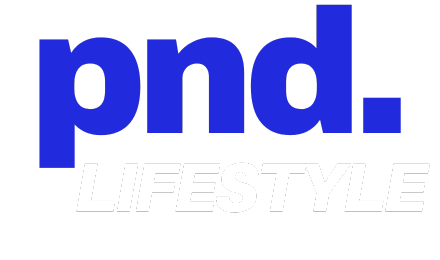10 Best Online Courses for Data Science Beginners: Kickstart Your Career in 2024

Data science is a fast-growing field with many job opportunities.
If you want to start a career in data science, taking online courses is a great way to learn.
These courses can teach you the skills you need to succeed.

You can find many online data science courses for beginners in 2024. These courses cover topics like statistics, programming, and machine learning.
Some are free, while others cost money.
The best courses for you will depend on your goals and how much time you can spend learning.
1) Data Science for Everyone by edX

Data Science for Everyone is a great starting point for beginners.
This course is offered on the edX platform, which hosts many high-quality online classes.
You don’t need any prior experience to join.
The course teaches you the basics of data science in a way that’s easy to understand.
You’ll learn about different types of data and how to work with them.
The course covers important concepts like data analysis and visualization.
One of the best things about this course is its flexibility.
You can learn at your own pace and fit it into your schedule.
The instructors use real-world examples to make the lessons more interesting.
This helps you see how data science is used in everyday situations.
You’ll get hands-on practice with data science tools and techniques.
This practical experience is valuable for building your skills.
By the end of the course, you’ll have a solid foundation in data science.
You’ll be ready to take on more advanced topics or start applying your knowledge in real projects.
Remember, this is just the beginning of your data science journey.
After this course, you can explore more in-depth data science programs to further develop your skills.
2) Python for Data Science and Machine Learning Bootcamp by Udemy

This course is a top choice for beginners in data science.
It covers Python programming and machine learning basics.
You’ll learn how to use Python for data analysis and visualization.
The course also teaches popular libraries like NumPy, Pandas, and Matplotlib.
Machine learning is a key part of the bootcamp.
You’ll study both supervised and unsupervised learning techniques.
The instructor breaks down complex topics into easy-to-understand lessons.
You’ll work on real-world projects to build your skills.
This comprehensive program includes over 40 hours of content.
It’s designed to take you from beginner to job-ready.
You’ll gain hands-on experience with tools used by data scientists.
The course covers Scikit-Learn, a popular machine learning library.
By the end, you’ll be able to create your own machine learning models.
You’ll also know how to interpret and present your findings.
The bootcamp is regularly updated to keep up with new developments.
This ensures you’re learning the most current skills and techniques.
You can learn at your own pace with lifetime access to course materials.
There’s also a community of learners to connect with for support.
3) IBM Data Science Professional Certificate by Coursera
The IBM Data Science Professional Certificate is a great choice for beginners looking to start a career in data science.
This program consists of 9 courses designed to give you job-ready skills.
You’ll learn essential tools and techniques used by data scientists.
The courses cover topics like Python programming, data analysis, and machine learning.
One of the best things about this certificate is that you don’t need prior knowledge of computer science or programming.
You can start from scratch and build your skills step by step.
The program is flexible, allowing you to learn at your own pace.
You can complete it in as little as 5 months, depending on how much time you can dedicate to studying.
By the end of the certificate, you’ll have hands-on experience with popular data science tools.
You’ll know how to work with Jupyter notebooks, create Python apps, and use SQL for database access.
The certificate also teaches you how to create data visualizations and perform data analysis using Python libraries.
These are key skills that employers look for in entry-level data scientists.
Upon completion, you’ll earn a professional certificate from IBM.
This can give you a competitive edge when applying for data science jobs.
4) Introduction to Probability and Data from Duke University
Duke University offers a great online course for beginners in data science.
It’s called “Introduction to Probability and Data” and it’s part of a larger Statistics with R program.
This course teaches you about sampling and exploring data.
You’ll also learn basic probability theory and Bayes’ rule.
The course covers different types of sampling methods.
You’ll see how these methods can affect data analysis.
You’ll use R software to practice what you learn.
R is a popular tool for statistics and data analysis.
The course takes about 8 weeks to finish.
You can set your own schedule and learn at your own pace.
By the end of the course, you’ll know how to explore data and understand basic probability.
These skills are key for any data scientist.
You don’t need to know much math to start.
The course is made for beginners and explains things clearly.
At the end, you’ll do a project to show what you’ve learned.
This gives you a chance to use your new skills on real data.
5) Data Science and Machine Learning with R by Pluralsight
Pluralsight offers a comprehensive course on Data Science with R.
This course is perfect for beginners who want to learn how to use R for data science projects.
You’ll start by learning the basics of R programming.
The course covers essential topics like data manipulation, visualization, and analysis using R.
As you progress, you’ll dive into more advanced concepts.
The course introduces you to machine learning techniques using R. You’ll learn how to build predictive models and apply them to real-world problems.
One of the strengths of this course is its practical approach.
You’ll work on hands-on exercises and projects throughout the course.
This helps you apply what you’ve learned to actual data science tasks.
The course is taught by experienced instructors who are experts in the field.
They provide clear explanations and valuable insights into using R for data science.
By the end of the course, you’ll have a solid foundation in data science and machine learning using R. You’ll be able to tackle real-world data problems and start building your own data science projects.
This Pluralsight course is a great choice if you want to learn R specifically for data science applications.
It provides a well-rounded education in both the programming and analytical aspects of data science.
6) Statistics for Data Science and Business Analysis by Udemy
This course on Udemy is perfect for data science beginners.
It covers key statistical concepts you’ll need in your data science journey.
The Statistics for Data Science and Business Analysis course teaches you how to organize and display different types of data.
You’ll learn to interpret various charts and plots, including histograms and box plots.
You’ll gain understanding of important statistical measures like average, median, and standard deviation.
The course also covers z-scores and their applications.
One of the strengths of this course is its focus on practical skills.
You’ll learn how to make data-driven decisions based on statistical insights.
The course covers confidence intervals and hypothesis testing.
These are crucial concepts for anyone working with data.
You’ll also get an introduction to regression analysis.
This is a key technique used in many data science applications.
The instructors have designed the content to be accessible for beginners.
They use clear explanations and avoid unnecessary jargon.
By the end of the course, you’ll have a solid foundation in statistics for data science.
This knowledge will help you in future data analysis tasks and more advanced data science courses.
7) Applied Data Science with Python Specialization from University of Michigan
The Applied Data Science with Python Specialization from the University of Michigan is a great choice for beginners in data science.
This program consists of five courses that introduce you to data science using Python.
You’ll start with the basics of Python programming and gradually move on to more advanced topics.
The specialization covers statistical analysis, machine learning, and data visualization techniques.
One of the strengths of this program is its practical approach.
You’ll work with popular Python libraries like pandas, matplotlib, and scikit-learn.
These tools are widely used in the data science industry.
The courses are designed for learners with some basic Python or programming knowledge.
If you’re completely new to programming, you might want to take an introductory Python course first.
Each course in the specialization builds on the previous one.
You’ll learn how to apply various data science techniques to real-world problems.
This hands-on experience is valuable for building your skills.
The specialization also covers text analysis and social network analysis.
These are important areas in modern data science that you’ll find useful in many applications.
By completing this specialization, you’ll gain a solid foundation in applied data science.
You’ll be well-prepared to tackle more advanced topics or start working on your own data science projects.
8) Google Data Analytics Professional Certificate
The Google Data Analytics Professional Certificate is a top choice for data science beginners.
This online program teaches you essential skills for entry-level data analyst roles.
You’ll learn to use important tools like spreadsheets, SQL, Tableau, and R. The course covers data collection, transformation, and organization.
The certificate is designed by Google experts.
It offers hands-on training to help you gain practical experience.
You can complete the program at your own pace.
It typically takes less than 6 months with about 10 hours of study per week.
The course is 100% online and remote.
This flexibility allows you to learn around your schedule.
After finishing, you’ll have the chance to connect with top employers.
This can help you start your career in data analytics.
The program is accessible through Coursera.
It’s part of Google’s effort to help people grow their skills and careers.
You’ll gain skills that are in high demand.
There are many job openings in data analytics with competitive salaries.
This certificate can be a great starting point.
It can lead to further specialization in areas like advanced data analytics or business intelligence.
9) Machine Learning A-Z by Udemy
Machine Learning A-Z is a popular online course for beginners in data science.
It covers both Python and R programming languages, giving you a broad foundation in machine learning techniques.
The course is designed by experienced data scientists to make complex algorithms and theories easy to understand.
You’ll learn about various machine learning models and how to apply them to real-world problems.
Topics covered include data preprocessing, regression, classification, clustering, and deep learning.
The course also teaches you how to use popular libraries like scikit-learn and TensorFlow.
Hands-on exercises and projects help reinforce your learning.
You’ll work with real datasets and build your own machine learning models from scratch.
The course is self-paced, allowing you to learn at your own speed.
It includes over 40 hours of video content, coding exercises, and quizzes to test your knowledge.
By the end of the course, you’ll have a solid understanding of machine learning concepts and practical skills to apply them.
This course is a great starting point if you want to enter the field of data science and machine learning.
10) Data Science MicroMasters by UC San Diego
UC San Diego offers a Data Science MicroMasters program that can help you build a strong foundation in this field.
This program consists of four online courses that cover essential topics for aspiring data scientists.
You’ll learn about probability, statistics, and machine learning in the mathematical courses.
These subjects are crucial for understanding the core concepts of data science.
The program also includes applied courses.
These will teach you how to work with real-world data and perform large-scale data analysis.
You’ll also learn about visual presentation of data, which is key for communicating your findings.
One advantage of this program is its flexibility.
You can take the courses at your own pace through the edX platform.
This makes it easier to fit your studies around your other commitments.
Upon completing the program, you’ll have the skills to make data-driven decisions.
This is a valuable asset in many industries today.
The MicroMasters program can also serve as a stepping stone.
If you’re considering further education, some universities may grant credit towards a full Master’s degree for completing this program.
Remember, this is a graduate-level program.
It’s designed to be challenging and will require dedication.
But if you’re serious about pursuing a career in data science, it could be an excellent choice for you.
Importance of Data Science
Data science shapes how businesses operate and make decisions.
It helps solve complex problems and creates new opportunities across industries.
Why Data Science Matters
Data science turns raw information into useful insights.
It helps companies understand their customers better.
With data science, businesses can spot trends and predict future outcomes.
You can use data science to boost sales and cut costs.
It helps find new ways to grow your business.
Data-driven choices often lead to better results than guesswork.
Many fields rely on data science now.
Healthcare uses it to improve patient care.
Banks use it to detect fraud.
Shops use it to manage inventory.
Data science also makes new tech possible.
Self-driving cars and smart home devices depend on it.
Voice assistants like Siri use data science to understand you.
Industry Demand for Data Scientists
The job market for data scientists is booming.
Many companies need experts to make sense of their data.
This high demand means good pay and job security for skilled workers.
Top tech firms like Google and Facebook hire lots of data scientists.
But it’s not just tech companies.
Banks, hospitals, and even sports teams want data pros too.
Data science roles often pay well above average.
Entry-level jobs can start at $80,000 or more per year.
Experienced data scientists can earn over $150,000 annually.
The field is growing fast.
Experts think demand will keep rising for years.
Learning data science now could set you up for a strong career path.
What to Look for in an Online Course
When choosing a data science course, key factors include the curriculum, instructor qualifications, and available support.
These elements can greatly impact your learning experience and outcomes.
Course Content and Curriculum
A good data science course covers essential topics like statistics, programming, and data visualization.
Look for courses that teach popular tools such as Python, R, or SQL.
The best courses offer hands-on projects to apply your skills.
Check if the course aligns with your goals.
Are you aiming for a broad overview or a deep dive into a specific area? Make sure the difficulty level matches your current knowledge.
Up-to-date content is crucial in this fast-changing field.
Courses should cover recent trends and technologies in data science.
Instructor Expertise and Credentials
Experienced instructors can provide valuable insights from real-world applications.
Look for courses taught by industry professionals or academic experts in data science.
Check the instructor’s background.
Do they have relevant work experience or research publications? Courses from reputable universities often have high-quality instructors.
Read student reviews to gauge the instructor’s teaching style and effectiveness.
Clear explanations and engaging presentations can make complex topics easier to understand.
Student Support and Community
Good courses offer support to help you succeed.
This might include:
- Discussion forums
- Live Q&A sessions
- Office hours with instructors
- Peer study groups
A strong learning community can enhance your experience.
It allows you to network, share ideas, and get help when stuck.
Check if the course provides timely feedback on assignments.
This helps you track your progress and improve your skills.
Some platforms offer career support, such as resume reviews or job placement assistance.
These extras can be valuable if you’re looking to enter the data science field.
Frequently Asked Questions
Data science beginners often have questions about getting started, finding courses, and building careers.
These FAQs address common concerns for newcomers to the field.
How can I start learning data science as a beginner?
You can start by taking online courses in data science basics.
Learn programming languages like Python and R. Study statistics and mathematics.
Practice with real datasets to build your skills.
What are the top free online courses for learning data science?
Some top free options include Data Science courses on Coursera.
EdX offers free data science classes from universities.
Udacity has introductory data science courses you can audit at no cost.
Can I earn a data science certificate online for free?
Most certificates have fees, but you can find some free options.
Coursera offers financial aid for their certificate programs.
Some platforms let you audit courses for free, but charge for certificates.
What platforms offer the best data science courses for newcomers to the field?
Popular platforms for beginners include Coursera, edX, and Udemy.
These sites offer courses designed for data science beginners.
Look for introductory-level classes that teach fundamentals and don’t require prior experience.
How can someone with no experience begin a career in data science?
Start by learning the basics through online courses.
Build a portfolio of projects to show your skills.
Network with other data scientists.
Look for entry-level positions or internships to gain experience.
What do beginners need to know before starting a data science course?
Basic math and statistics knowledge is helpful.
Familiarity with a programming language like Python can be useful.
Be prepared to dedicate time to learning and practicing.
Stay curious and patient as you build your skills.






